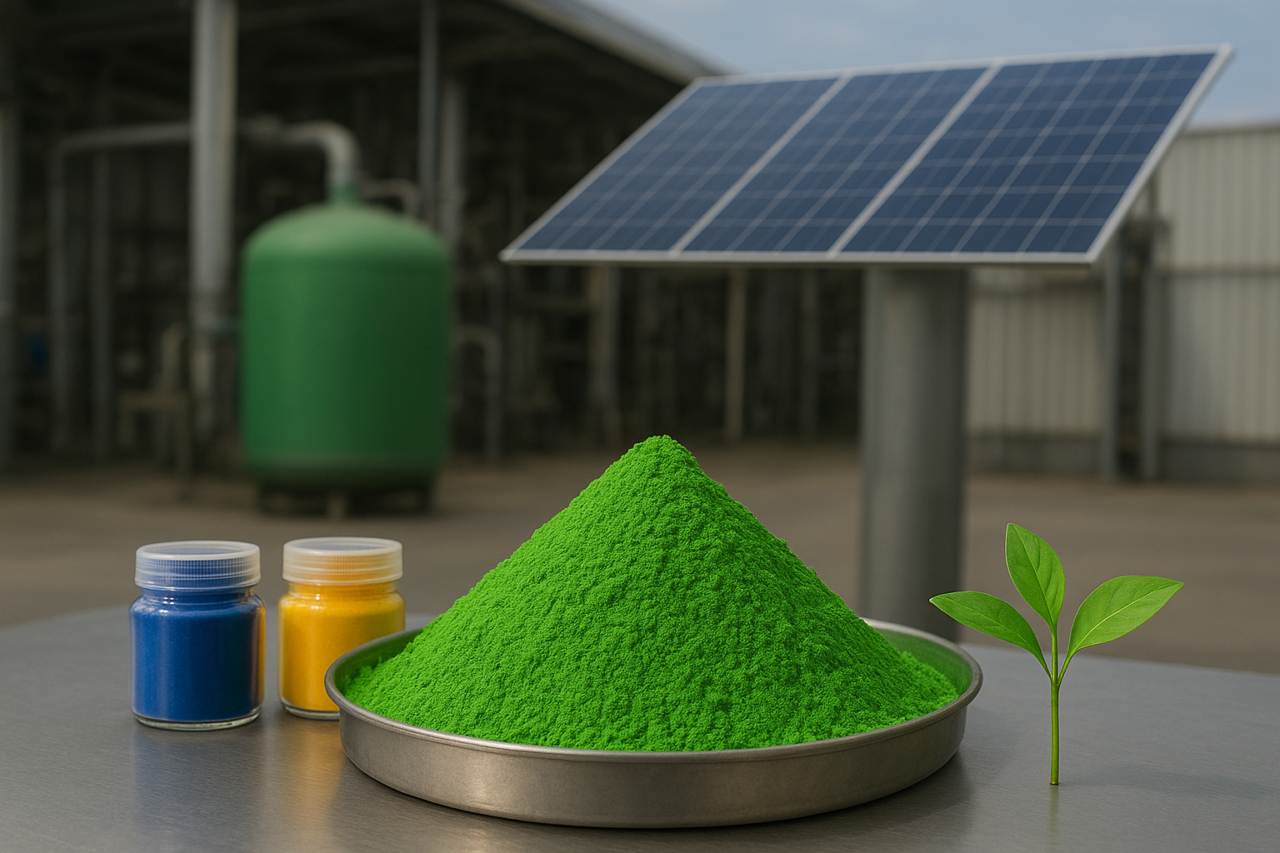In today’s manufacturing world, sustainability is no longer optional—it’s an expectation. For pigment producers like Neelikon, adopting eco-friendly manufacturing practices is about more than meeting regulations; it’s about protecting the environment while delivering premium-quality colours.
Modern pigment manufacturing facilities are increasingly adopting energy-efficient technologies to reduce operational costs and environmental impact. Key strategies include:
- Upgrading to energy-efficient motors
- Using variable frequency drives (VFDs)
- Optimising heating and cooling cycles
- Integrating renewable energy sources like Solar panels and biomass boilers.
These upgrades not only reduce greenhouse gas emissions but also contribute to long-term savings and improved process reliability.
- Optimising Raw Material Usage
Efficient use of raw materials is the first step in reducing waste. By refining production planning and continuously improving batching processes, pigment loss can be minimised. Advanced mixing technology ensures that every particle is utilised, reducing scrap. - Solvent Recovery Systems
In pigment manufacturing, solvents play a crucial role in processing. Neelikon uses closed-loop solvent recovery systems, which capture, purify, and reuse solvents rather than releasing them into the environment or disposing of them after a single use. - Water Conservation
Many pigment processes require water for washing, cooling, or dispersing. Neelikon’s approach involves water recycling systems and effluent treatment plants (ETPs) that ensure water is cleaned and reused, reducing overall consumption. - Energy Efficiency
Upgrading to energy-efficient motors, using variable frequency drives, and optimising heating/cooling cycles significantly reduce energy use. Integrating renewable energy sources—such as solar power—further reduces the company’s carbon footprint. - Waste-to-Value Initiatives
Rather than treating by-products as waste, Neelikon explores opportunities to repurpose them. In some cases, pigment sludge can be processed into construction materials, or recovered chemicals can be reintroduced into production. - Compliance and Transparency
Sustainability is also about accountability. Neelikon adheres to global environmental standards such as ISO 14001, ensuring that processes are continuously monitored and improved.
Eco-friendly pigment manufacturing is not a one-time change but a culture of continuous improvement. By implementing these practices, Neelikon not only reduces its environmental impact but also strengthens its reputation as a responsible, future-ready colour manufacturer.


